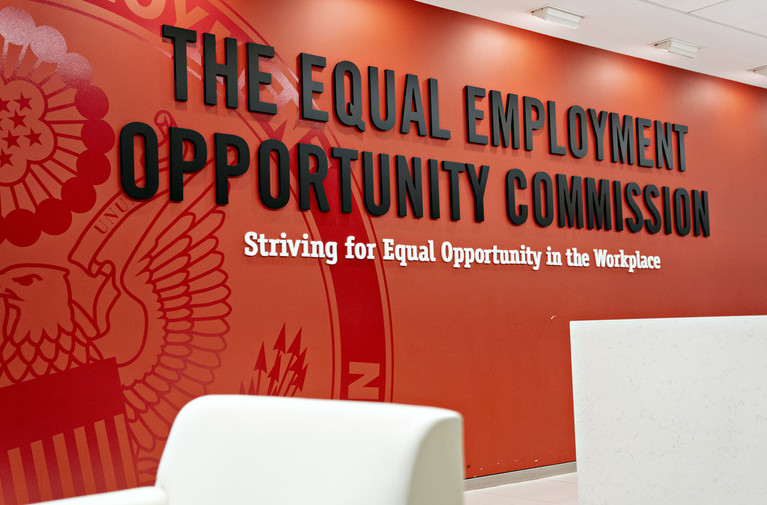As the U.S. Equal Employment Opportunity Commission (EEOC) ramps up enforcement under the second Trump administration, recent lawsuits over COVID-19 vaccine mandates are signaling a potential surge in actions targeting religious discrimination in the workplace. Filed in 2025, these suits—against major healthcare providers like Mayo Clinic, Mercyhealth, and Infinity Rehab—allege failures to accommodate employees’ sincerely held religious beliefs opposing vaccination requirements. Employment law experts suggest these cases preview a broader, more aggressive EEOC focus on religious liberty protections, influenced by the 2023 Supreme Court decision in Groff v. DeJoy and the agency’s shift toward prioritizing Title VII claims over other discrimination areas. With over 13,000 vaccine-related religious charges filed in fiscal year 2022 alone, the EEOC’s actions could foreshadow increased scrutiny of employer policies in post-pandemic workplaces, including potential parallels to emerging issues like LGBTQ+ rights and mandatory health measures.
The Rise of EEOC Vaccine Mandate Lawsuits in 2025
The EEOC has filed multiple high-profile suits this year, marking a departure from the Biden-era emphasis on broader equity issues. In July 2025, the agency sued Mayo Clinic in Minnesota federal court, claiming the hospital violated Title VII by denying a security guard’s religious exemption to its mandatory COVID-19 vaccine policy. The employee, citing his Assemblies of God Church beliefs that the vaccine conflicted with “divine healing” and biblical teachings, offered alternatives like masking and testing, but was forced to vaccinate or face termination. The EEOC seeks back pay, damages, and an injunction against future denials, arguing Mayo failed to prove undue hardship under the heightened Groff standard.
Similarly, in August 2025, Mercyhealth agreed to a $1 million settlement with the EEOC over claims it discriminated against a class of employees by denying religious accommodations and imposing wage deductions or terminations for non-compliance. The case involved workers across Illinois and Wisconsin facilities who objected to the vaccine on faith grounds. Infinity Rehab settled a related charge in May 2025, providing monetary relief and training after terminating an occupational therapist for refusing vaccination due to religious beliefs.
These suits stem from a spike in charges: FY 2022 saw a 600% increase in religious discrimination claims, largely tied to vaccine mandates, totaling over 13,800 filings. The EEOC’s acting chair, Andrea Lucas, emphasized in an August 2025 statement that such mandates represent “substantial encroachment on religious liberty,” vowing “robust” enforcement to prevent workers from choosing between their “paycheck and their faith.”
The Impact of Groff v. DeJoy on EEOC Strategy
The Supreme Court’s 2023 ruling in Groff v. DeJoy redefined “undue hardship” under Title VII from a “de minimis” burden to a “substantial” one in the cost of religion, making it harder for employers to deny accommodations. This shift has empowered the EEOC to pursue more cases, as seen in the Mayo suit, where the agency cited Groff to argue that alternatives like testing posed no significant burden. Pre-Groff, many vaccine exemption denials survived motions to dismiss; post-ruling, courts like the Fourth Circuit have reinstated suits, such as one against Inova Health System in February 2025, finding a nurse’s biblical objections sufficiently religious.
Experts predict this will lead to more settlements and verdicts favoring employees. A 2024 Reuters analysis noted workers fired for refusing vaccines on religious grounds are increasingly winning, with a San Francisco jury awarding $7.8 million to transit employees in October 2024. The EEOC’s suits, often against healthcare giants, amplify this trend, signaling to employers that blanket denials risk litigation.
Historical Context: From EEOC Guidance to Enforcement
EEOC guidance since 2020 has permitted vaccine mandates if reasonable accommodations are provided for disabilities (under the ADA) or religion (under Title VII), absent undue hardship. Early suits under Biden focused on disparate impacts, but the Trump administration’s return has pivoted to “evenhanded enforcement” of religious protections, per Lucas. This includes settlements in non-vaccine religious cases, like antisemitism at universities, but vaccine suits dominate, reflecting unresolved pandemic-era grievances.
Private litigation has faltered historically—66 suits since 2021 saw only three temporary wins for plaintiffs—but Groff and EEOC backing are changing that. A 2023 Bloomberg Law report predicted more EEOC actions post-Groff, a prophecy fulfilled in 2025.
Broader Implications: Preview of Future EEOC Priorities
These suits preview an EEOC emphasizing religious liberty over other areas, potentially extending to anti-LGBTQ+ policies under Title VII’s Bostock ruling. One lawyer noted the vaccine cases could signal a “new approach to LGBTQ issues,” aligning with Trump’s focus on opposing “woke policies.” Healthcare faces heightened scrutiny, with suits in physically demanding roles highlighting low-wage workers’ vulnerabilities.
For employers, this means robust accommodation processes: individualized assessments, documentation of hardships, and training. Non-compliance risks injunctions, damages, and policy overhauls, as in Mercyhealth’s three-year agreement. As FY 2025 charges rise, experts urge proactive compliance to avoid the “robust” enforcement wave.
